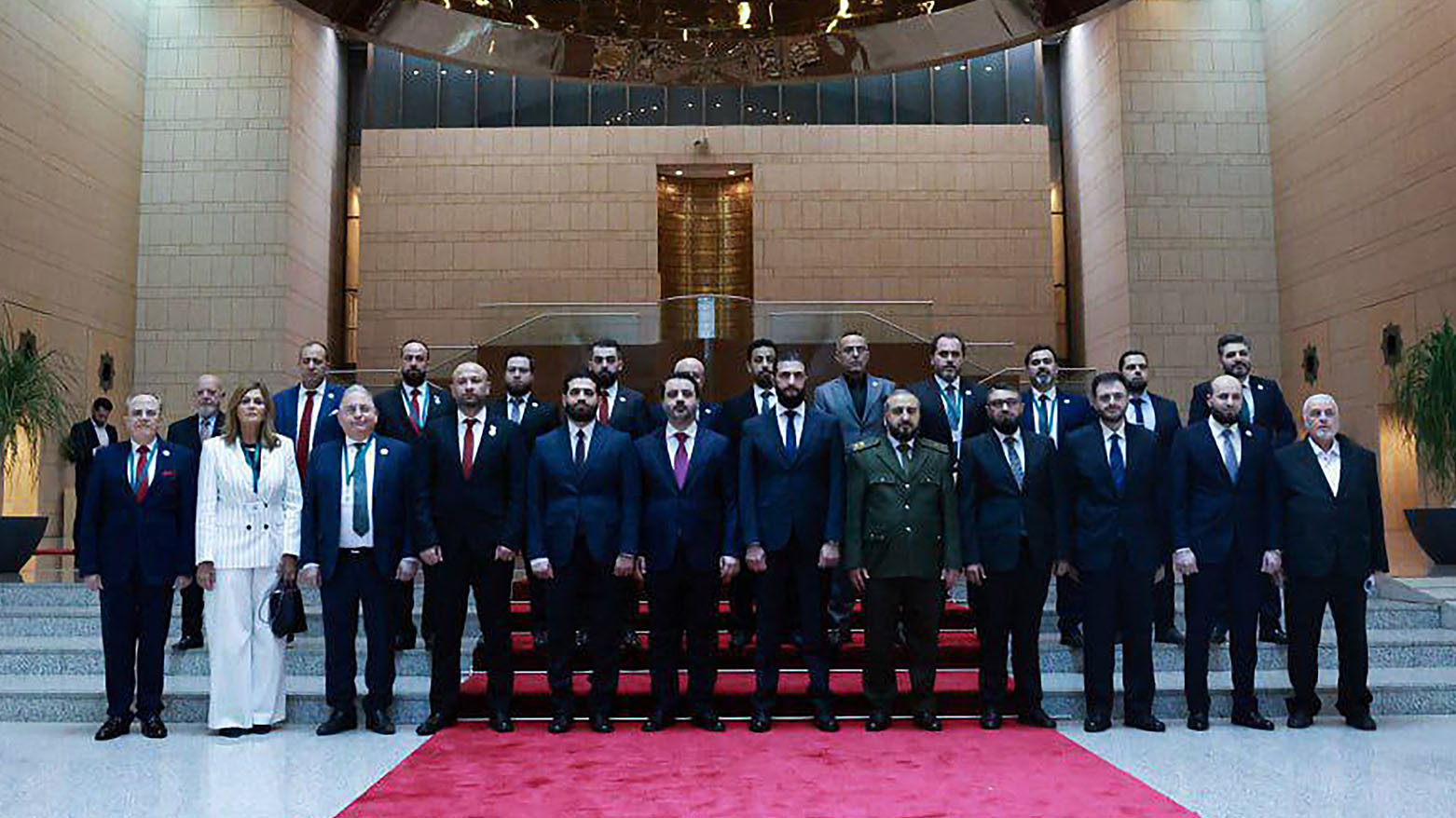Kurdish Legal Scholar Named Education Minister in Syria’s New Cabinet
Despite Mohammad Terko’s appointment, a Kurdish scholar from Afrin, the transitional cabinet notably excluded members of the Kurdish-led and U.S.-backed Syrian Democratic Forces (SDF) and the autonomous administration in northeast Syria.

By Kamaran Aziz
ERBIL (Kurdistan24) — Syria’s transitional President, Ahmad al-Sharaa unveiled a new government on Saturday evening, inaugurating a sweeping cabinet formation that includes former rebel leaders, academic experts, civil society activists, and technocrats. While heralded by some as a fresh chapter for a post-Assad Syria, the absence of a prime minister and the prominent appointment of figures closely aligned with al-Sharaa has drawn mixed reactions both domestically and abroad.
In a nationally broadcast ceremony from the presidential palace, al-Sharaa—who assumed power on December 8 following the collapse of Bashar al-Assad’s government—emphasized themes of unity, national reconstruction, and institutional integrity.
One of the most notable appointments was that of Mohammad Abdulrahman Terko, a Kurdish legal scholar from Afrin now based in Damascus, who took the oath as Minister of Education. His inclusion is viewed as a symbolic gesture toward Syria’s Kurdish community, often marginalized under previous governments.
However, despite Terko’s appointment, the transitional cabinet notably excluded members of the Kurdish-led and U.S.-backed Syrian Democratic Forces (SDF) and the autonomous administration in northeast Syria. This omission stands in contrast to the recent breakthrough agreement signed earlier this month in Damascus between al-Sharaa and SDF commander Mazloum Abdi, which outlined a national ceasefire and a framework for merging SDF forces into the Syrian army.
The deal was hailed as a historic turning point, but the lack of SDF representation in the cabinet has raised concerns about the depth of inclusivity and the future implementation of that accord. “We are witnessing the birth of a new phase in our national journey,” he said. “Today marks the beginning of a path we take together toward the future we deserve, inspired by our glorious past and driven by unwavering determination.”
The 23-member cabinet took the constitutional oath in a ceremony framed as a symbolic turning point. However, critics quickly pointed to the concentration of power in the hands of al-Sharaa, particularly given the lack of a designated prime minister and the retention of control over key ministries such as defense, interior, and foreign affairs by individuals from his inner circle.
The Minister of Interior, Anas Khattab—once known by his nom de guerre “Abu Ahmad Hudud”—is a former senior official in Hay’at Tahrir al-Sham (HTS), a group with a controversial past that has been designated as a terrorist organization by several countries. Minister of Foreign Affairs Asaad Hassan Al-Shaibani, a political science scholar from Hasakah, has held key positions in the Syrian Salvation Government (SSG). Defense Minister Marhaf Ahmed Abu Qasra, a former artillery commander from Hama, is known for modernizing rebel military tactics and drone development. Minister of Justice Mazhar Al-Wais also has a background in HTS and was a leading figure in its judicial restructuring efforts following the group’s split from ISIS.
Mohammad Abu Al-Kheir Shukri was named Minister of Religious Endowments, bringing academic and clerical experience from Damascus. Marwan Al-Halabi, a fertility specialist trained in France, now serves as Minister of Higher Education. Hind Kabawat, a seasoned civil society activist and interfaith dialogue expert, has been appointed Minister of Social Affairs and Labor.
The Ministry of Energy is headed by Mohammad Al-Bashir, a development-focused engineer from Idlib. Mohammad Yasser Barniyah, a U.S.-educated economist, leads the Finance Ministry, while Mohammad Nidal Al-Shaar—formerly Syria’s Minister of Economy—returns to head the Economy portfolio.
Health Minister Musab Nazzal Al-Ali is a German-educated physician from Deir Ezzor who worked extensively with revolutionary medical teams. Mohammad Anjarrani, a former political detainee and engineer from Aleppo, now leads the Ministry of Local Administration. Raed Al-Saleh, the internationally known founder of the White Helmets, has been appointed Minister of Emergency and Disasters.
The Ministry of Communications is now led by Abdul Salam Haykal, a tech entrepreneur renowned for his work in Arabic natural language processing. Amjad Badr, an agricultural economist and researcher, heads the Ministry of Agriculture.
Public Works and Housing will be overseen by civil engineer Mustafa Abdul Razzaq, while Mohammad Saleh, a celebrated literary figure, has been named Minister of Culture. Mohammad Samih Hamad, a former athlete and sports administrator, takes over the Ministry of Youth and Sports.
Tourism expert Mazen Al-Salhani was appointed Minister of Tourism, bringing decades of international hospitality experience. Mohammad Hassan Skaf, an expert in administrative development, will lead the Ministry of Administrative Development. Yarub Suleiman Badr, a veteran policy advisor and former Minister of Transport, returns to head the Ministry of Transport. Hamza Mustafa, a political scientist and media executive, is now the Minister of Information.
While the new cabinet has been met with cautious optimism by some international observers—especially those encouraged by signs of inclusion and professionalism—it also raises questions about the enduring influence of hardline elements within the transitional leadership. The appointment of individuals with HTS ties may complicate diplomatic efforts, particularly with Western governments still wary of the group’s legacy.
Nonetheless, al-Sharaa’s administration appears determined to present itself as capable of steering Syria toward reconstruction, reconciliation, and eventual elections. “This is a government for all Syrians,” a presidential advisor stated following the ceremony. “Its composition reflects our painful past, but also the promise of a shared future.”
Whether this newly formed cabinet can maintain cohesion, navigate deep-rooted tensions, and earn the confidence of both Syrians and the international community remains to be seen. But in a nation scarred by war and disillusionment, the formation of this transitional government marks a tentative, if contested, step toward national renewal.
